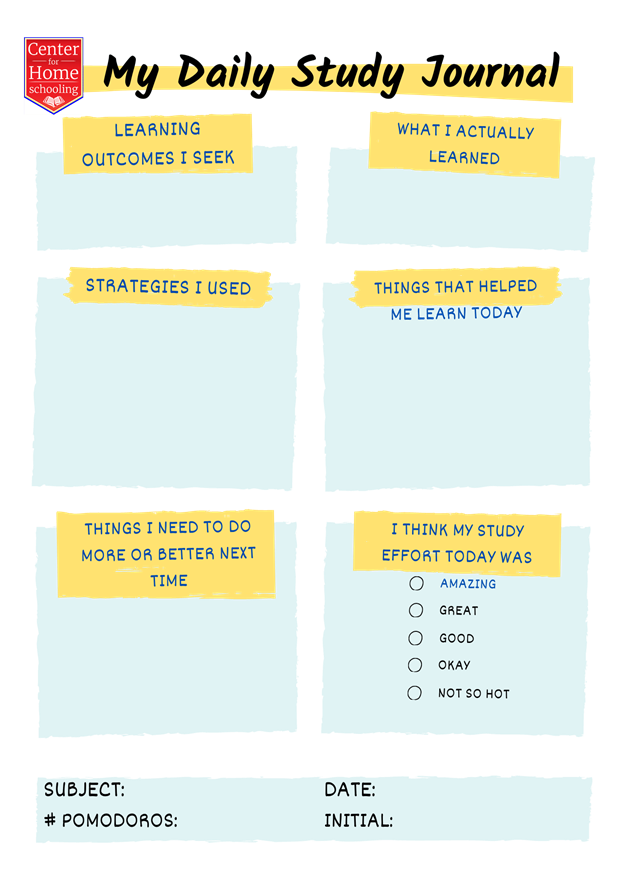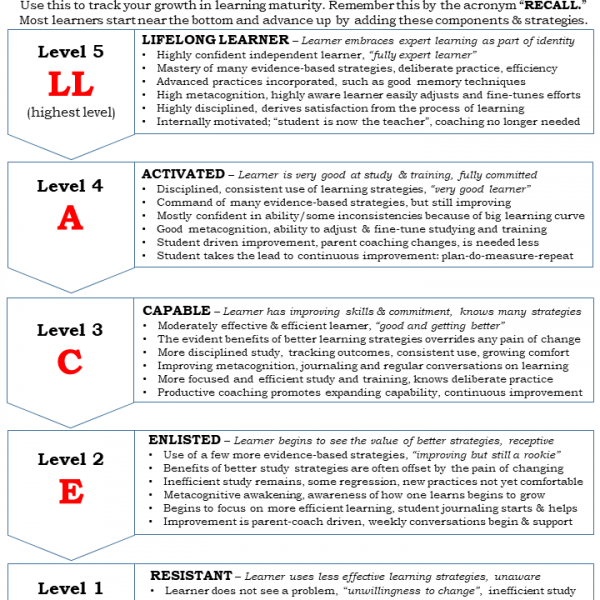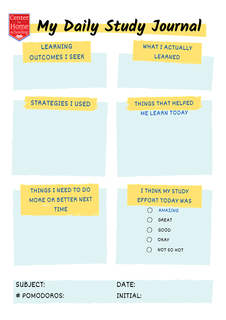
Discover Student Journaling

Reading time: 6 minutes
Bonus: Includes a Downloadable Worksheet
Student journaling is a powerful method to improve how you learn. There are many ways to do it. This article includes a six-step simple form that can be used by middle-school-age kids and up to boost learning.
Whether you use the example on the last page to journal or invent your own, the best advice is to start simple and let the kids take the lead in setting up a system they feel comfortable with. Begin with a simple method and make it easy to do at first. Don’t create something stressful for the child as this defeats the purpose of the journal, which is to positively reflect on your learning efforts. For younger kids, encourage the use of drawings, markers, and glitter pens. Make it fun – for example, invent animal symbols to represent different learning strategies.
Great Thinkers Use it
Judy Willis MD, a neurologist, and former classroom teacher explains:
“The practice of writing can enhance the brain’s intake, processing, retaining, and retrieving of information… it promotes the brain’s attentive focus… boosts long-term memory, illuminates patterns, gives the brain time for reflection, and when well-guided, is a source of conceptual development and stimulus of the brain’s highest cognition.”
Let’s explore how you can encourage your kids to do it!
Famous People Who Kept Journals
When you decide to start journaling your learning efforts, you join the ranks of great thinkers and learners. People who understood the magic that comes from taking a little time to put your thinking and actions down on paper.

Over the years many famous thinkers have kept journals, including Thomas Edison, Albert Einstein, Richard Feynman, and Ben Franklin. They felt their journaling improved their thinking and helped them find greater clarity.
Journaling your learning efforts is a wise habit to develop. It will help you to become a better learner.
End each study day with a journal entry that describes how you spent your day learning and growing your brain. Describe what you did, your accomplishments, and how you felt about your day.
Join the Club!
How Journaling Improves Thinking
Examine how journaling about your learning in the right column improves awareness and develops deeper thinking about your learning, which is called metacognition. The student on the right is reflecting on what she did and what she accomplished:
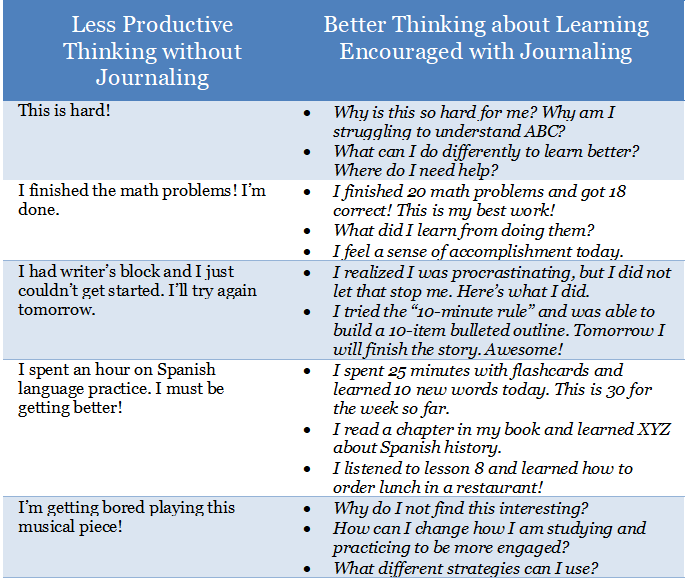
You can encourage the type of journaling on the right by asking good questions at the end of the study day while this information is still fresh in the mind.
The best journal method is one that is comfortable and fits your purposes. Of course, it can be done on a blank sheet of paper, but I like an easy-to-use form with columns that encourages recording things like methods used, insights into what you learned, outcomes achieved, and how you felt. Start simple and build on this. You can easily search “Journaling” and find many more ideas on different methods for doing it.
For older kids, you can turn this into a research project on the benefits of journaling. Have them do research and then present to you what they learned about it.
Gain these Benefits from Student Journaling
There are many benefits to keeping a daily student journal.
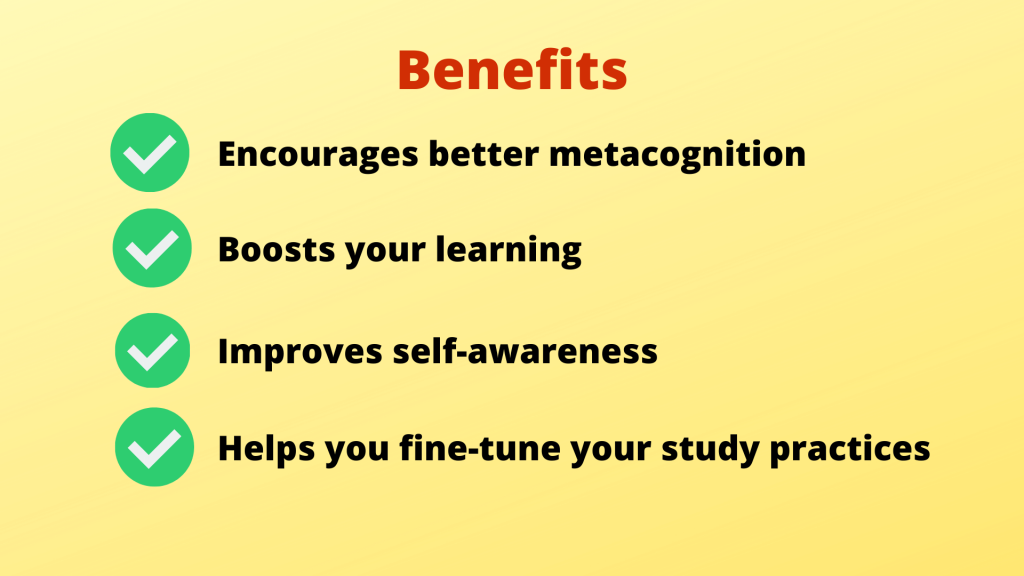
Research has repeatedly found that when we track and evaluate our behavior, it improves dramatically. There is a big payoff from this small effort.

The bottom line is this – the information the student records in their journal helps them think about how they can do it better next time. It also helps them track and gain a sense of good progress. Journaling provides a quiet moment for self-reflection and is a positive way to close the study day.
How to Do It
There is no one best way to journal your studies and practice sessions.
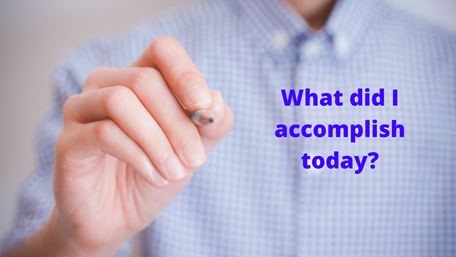
Help tailor the method of journaling to fit the learning maturity of the student. For younger learners, you might start with a single notation about what they learned to encourage the habit of summarizing their efforts. For the older student, encourage them to include more information for greater self-reflection. But always keep it simple so it provides a satisfying and quick ending routine to the study day.
For the more mature learner, encourage a more comprehensive and deeper type of thinking about their learning. Deeper insights into how they study provide useful detail for conversations about how to learn faster and better. These are some of the areas or activities that can be summarized by more advanced learners in the journal:
- The subject you studied, the project you worked on, or the practice you performed. (Journaling works for music and sports too.)
- Briefly, how you conducted the study session or practice including the strategies and methods you used, and how these worked.
- What you learned – the learning outcomes achieved, or not. If there was a breakthrough or a problem, what happened?
- Note your emotions or “affect” – how did you feel about this effort – positive or negative? Why?
- Use this as an opportunity to develop insights into how you learn. What did you learn to help you do it better in the future?
Encourage this as a lifelong habit that maximizes your ability to learn and grow!
Use this worksheet to describe your study efforts each day. Think about how you can work smarter!
Click here to download a pdf of the worksheet.




